
Sir Samuel Cunard, 1st Baronet, was a British-Canadian shipping magnate, born in Halifax, Nova Scotia, who founded the Cunard Line, establishing the first scheduled steamship connection with North America. He was the son of a master carpenter and timber merchant who had fled the American Revolution and settled in Halifax.
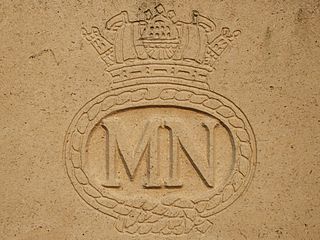
The British Merchant Navy is the collective name given to British civilian ships and their associated crews, including officers and ratings. In the UK, it is simply referred to as the Merchant Navy or MN. Merchant Navy vessels fly the Red Ensign and the ships and crew are regulated by the Maritime and Coastguard Agency (MCA), a specialist agency of the UK Department of Transport. British merchant ships are registered under the UK or Red Ensign group ship registries. British Merchant Navy deck officers and ratings are certificated and trained according to STCW Convention and the syllabus of the Merchant Navy Training Board in maritime colleges and other training institutes around the UK.

APL, formerly called American President Lines Ltd., is an American container shipping company that is a subsidiary of French shipping company CMA CGM. It operates an all-container ship fleet, including nine U.S. flagged container vessels.

Iwasaki Yatarō was a Japanese industrialist and financier known as the founder of Mitsubishi, one of Japan's largest conglomerates.

The Onedin Line is a BBC television drama series that ran from 1971 to 1980. The series was created by Cyril Abraham.

Stavros Spyrou Niarchos was a Greek billionaire shipping tycoon. Starting in 1952, he had the world's biggest supertankers built for his fleet. Propelled by both the Suez Crisis and increasing demand for oil, he and rival Aristotle Onassis became giants in global petroleum shipping.

Sir Donald Currie was a Scottish shipowner, politician and philanthropist.

Grinnell, Minturn & Co. was one of the leading transatlantic shipping companies in the middle 19th century. It is probably best known today as being the owner and operator of the Flying Cloud, arguably the greatest of the clipper ships.
William Leslie Comyn was a Californian businessman, shipbuilder and builder of one of the first large concrete ships.

Alfred Booth and Company was a British trading and shipping company, founded in 1866 and traded for more than a century. It was founded in Liverpool, England, by two brothers, Alfred and Charles Booth to export English light leather to the US. It grew into a significant merchant shipping company with its head office in Liverpool and interests in the United States and South America. The group was broken up in 1964 and the last Booth company from the group was sold in 1986.
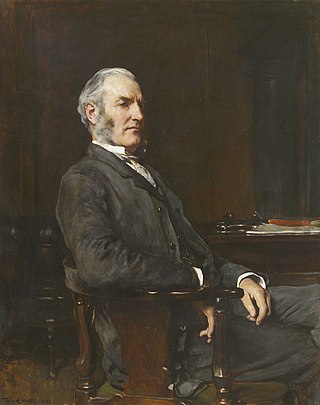
Sir Edward James Harland, 1st Baronet, was an Ulster-based English shipbuilder and politician. Born in Scarborough in the North Riding of Yorkshire, he was educated at Edinburgh Academy. In 1846, aged 15, he took an apprenticeship at the engineering works of Robert Stephenson and Company in Newcastle upon Tyne. Afterwards he was employed in jobs in Glasgow and again in Newcastle, before moving to Belfast in 1854 to manage Robert Hickson's shipyard at Queen's Island. Four years later he bought the yard and renamed the business Edward James Harland and Company. In 1861 he formed a business partnership with Gustav Wilhelm Wolff, his former personal assistant, creating Harland and Wolff. Later, Harland recruited William James Pirrie as another partner. Edward Harland, Gustav Wolff and William James Pirrie maintained a successful business, receiving regular orders from the White Star Line, before Harland's retirement in 1889, leaving Wolff and Pirrie to manage the shipyard.
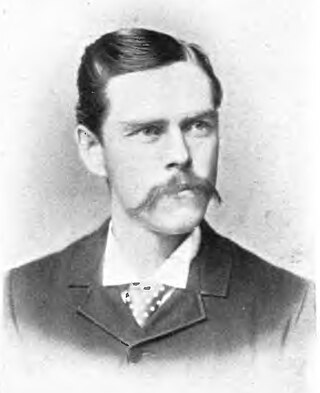
James William Troup was an American steamship captain, Canadian Pacific Railway administrator and shipping pioneer.

Vice-Admiral Constantine Richard Moorsom was a vice-admiral in the Royal Navy. He commanded HMS Fury a Hecla-class bomb vessel which saw wartime service in the Bombardment of Algiers, an attack on Barbary pirates at Algiers in HMS Fury in August, 1816. Moorsom was the son of Admiral Sir Robert Moorsom, a veteran of Trafalgar. Moorsom was on the roster of HMS Revenge, his father's ship, when it was at the Battle of Trafalgar. However records show that Constantine was actually at school at the time of the battle. Moorsom rose to be chairman of the London & North Western Railway.
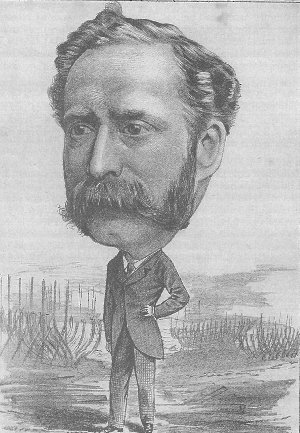
Sir William Pearce, 1st Baronet was a British shipbuilder, under whose management the Fairfield Shipbuilding and Engineering Company in Govan on the River Clyde became the leading shipbuilding company in the world. He was later a Conservative Party politician.
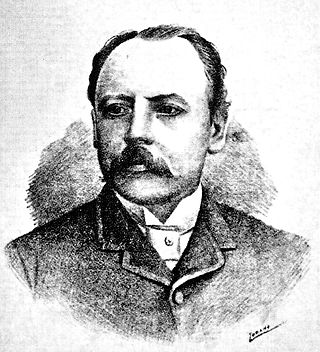
Michael Paul Grace was an Irish-American businessman who was a shareholder and chairman of the board of directors of W. R. Grace and Company shipping company of New York City and of Grace Brothers & Co. Ltd. of London, England.
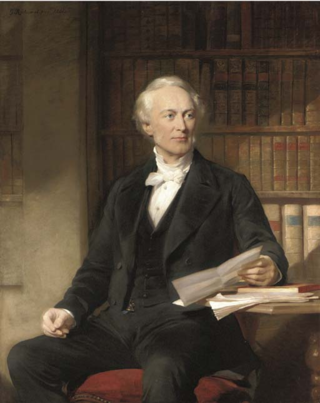
Octavius Wigram was an English businessman and ship owner in the City of London, a member of Lloyds and Governor of the Royal Exchange Assurance Corporation.

The General Steam Navigation Company (GSN), incorporated in 1824, was London's foremost short sea shipping line for almost 150 years. It was the oldest shipping company in the world to begin business with seagoing steam vessels.
Robert Brooks was a British Conservative Party politician, businessman and trader.

SS Maplewood was a British cargo steamship. She was launched on the River Tees in 1915. A U-boat sank her in the Mediterranean in 1917.

Osaka, A composite barque, built by William Pile, Sunderland, at Yard No. 179 for Killick Martin & Company, the company founded by Captain James Killick and launched on 12 July 1869. William Pile also built Osaka's sister ship Miako, for Killick Martin & Company launched on 15 April 1869.


















